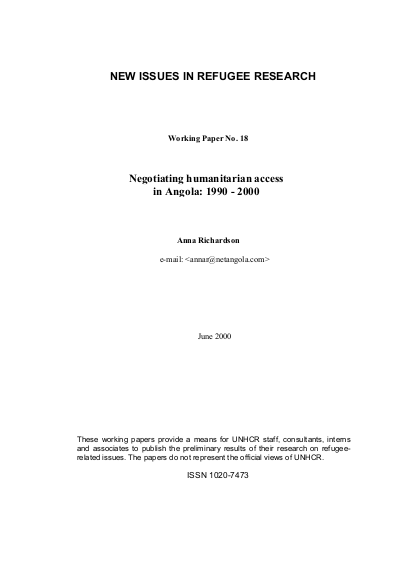
For almost forty years, Angola has been trapped in a cycle of wars. Fighting began in 1961, when nationalist movements launched the struggle for independence from colonial power Portugal. Following independence in 1975, the two main movements – the Marxist, urban-based Movimento Popular de Libertação de Angola (MPLA), and the rural-based União Nacional para a Independencia Total de Angola (UNITA) turned on each other in a struggle for power, with the support of the Cold War super powers. The resulting civil war has continued since, with barely a pause.
Since the end of the Cold War, Angola has been through two phases of civil war, from 1989-91 and from 1992-94, and two UN peace processes. The country has now returned to civil war for the third time in a decade. Over time, the conflict has ceased to be in any way ideological, and has become instead a struggle for personal enrichment through control of the country’s mineral resources. Both parties to the conflict have abdicated responsibility for the civilians under their control, national infrastructure has been allowed to collapse, and the coping mechanisms of the population have been eroded by deepening despair.1 In this context, international humanitarian actors have taken on an increasingly important role.
This study will document the successful attempts, in 1991 and 1993, to negotiate humanitarian access to both sides of the battle lines in Angola. It will consider the nature of the negotiations, agreements reached, and the degree of success with which they were implemented. In the light of lessons learned from these two preceding phases, the study will then consider the present period, when attempts to negotiate access have reached an impasse, despite the enormous and urgent need for humanitarian intervention nationwide.
